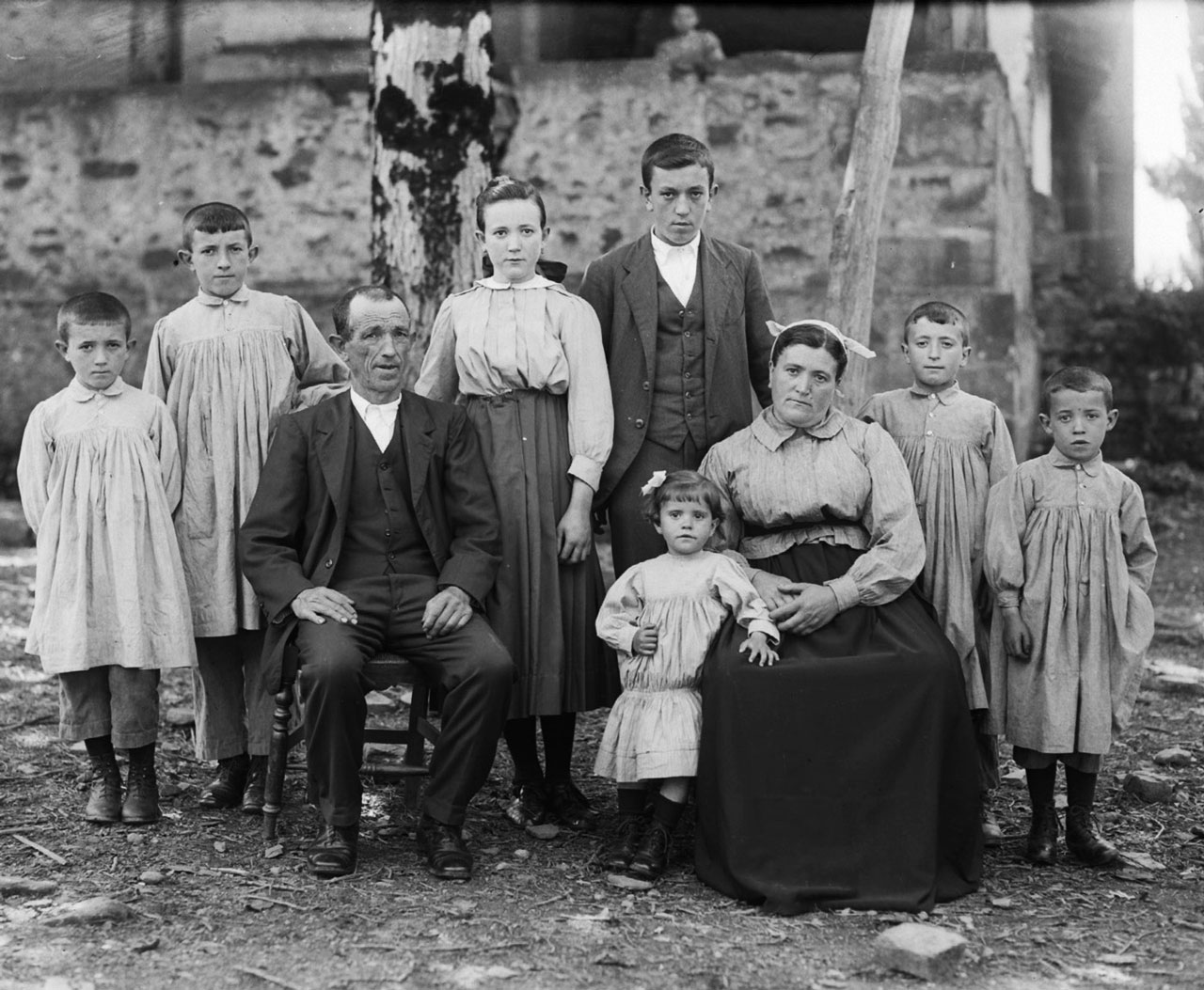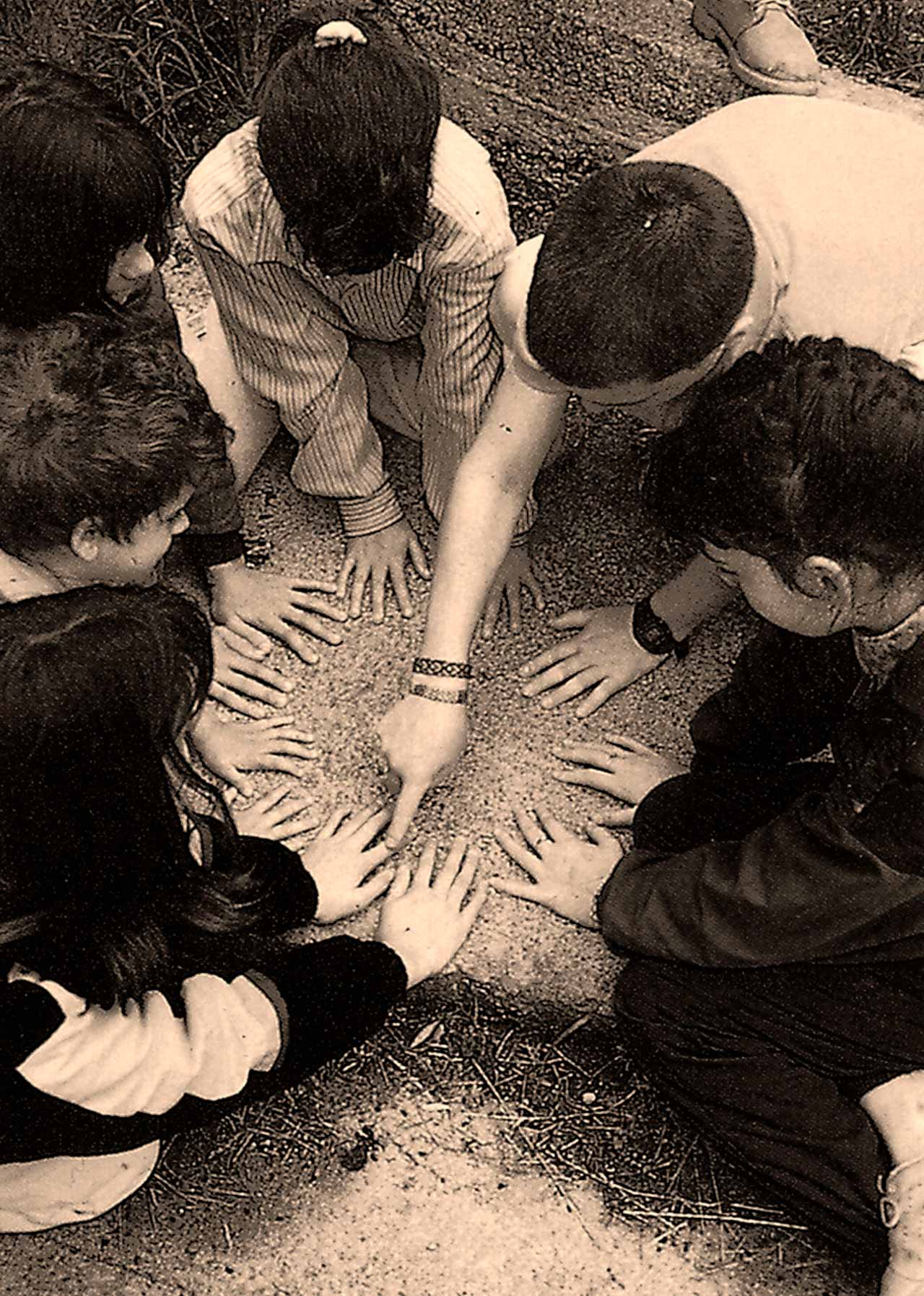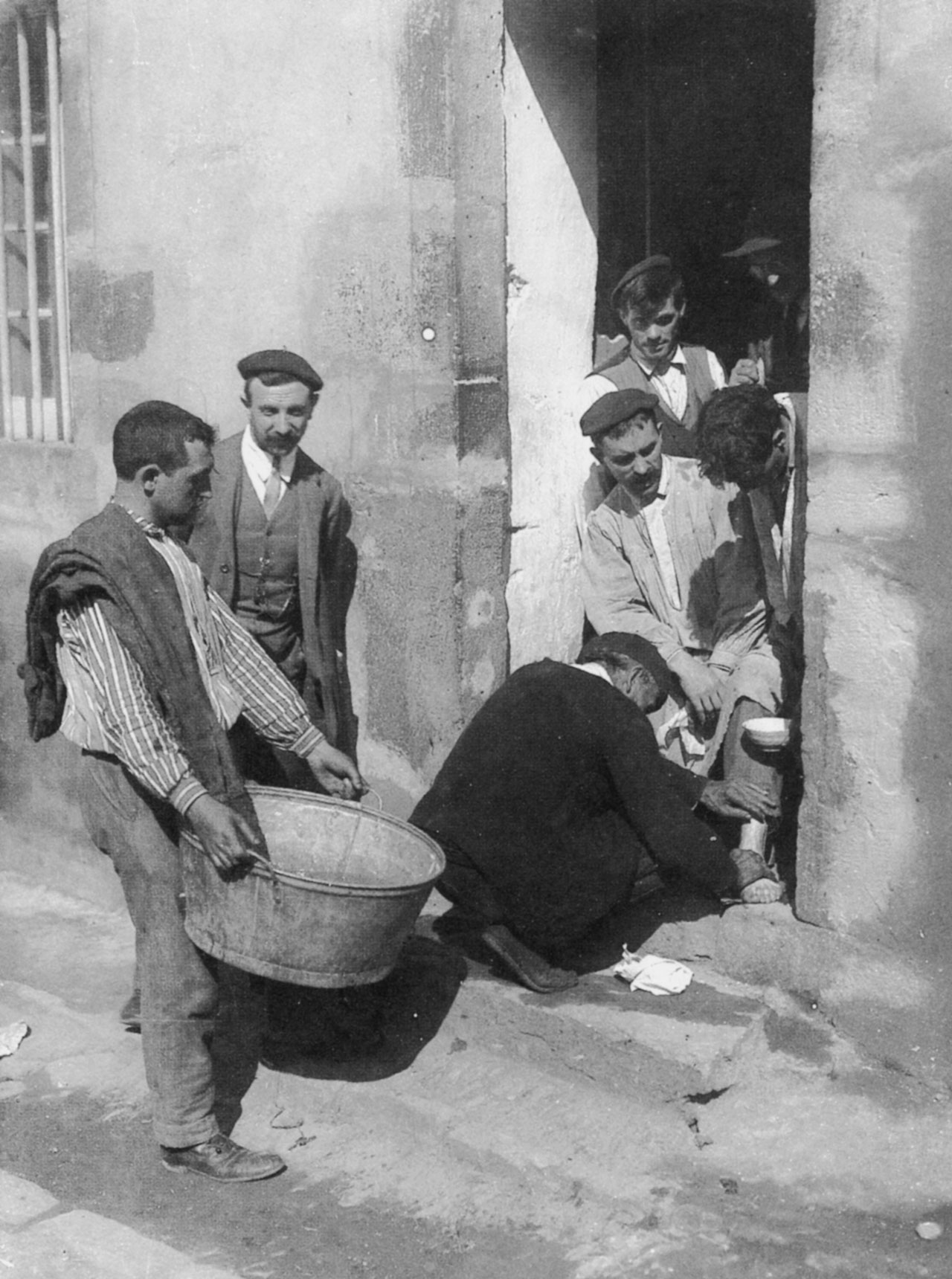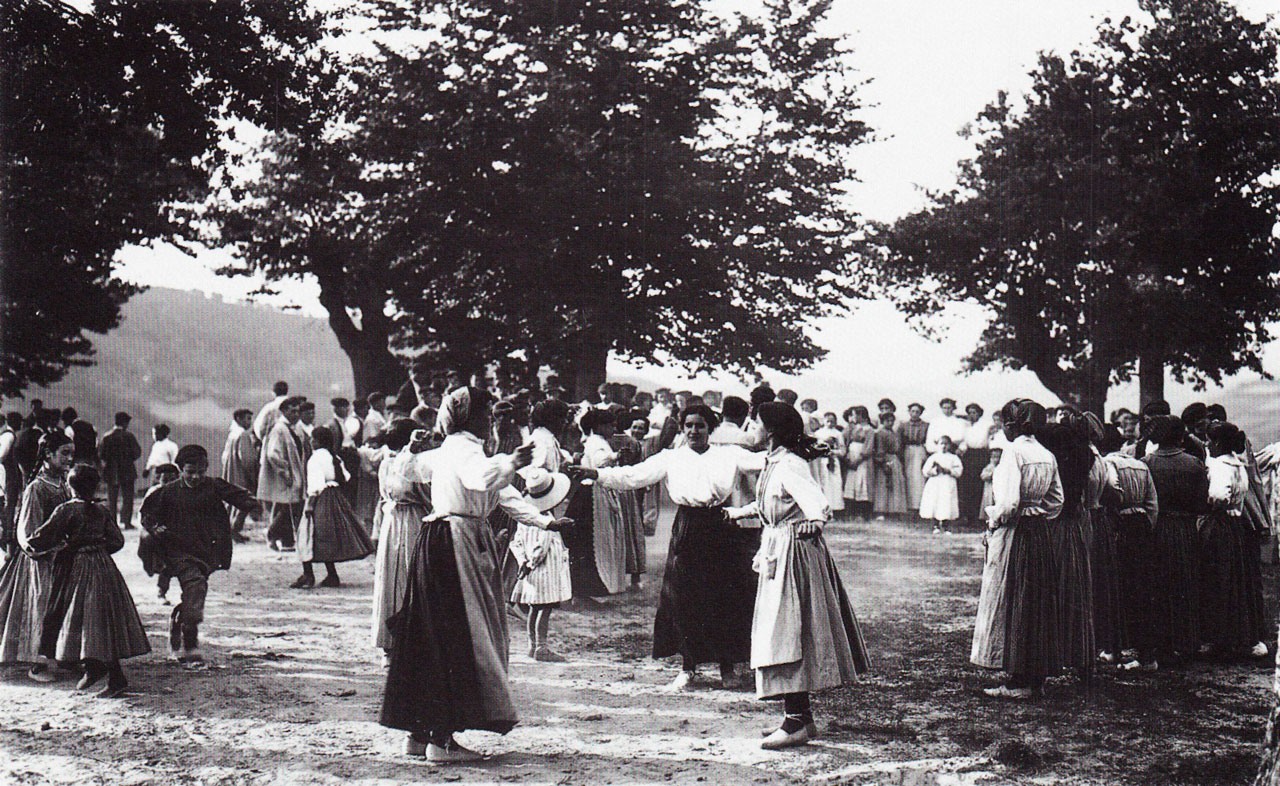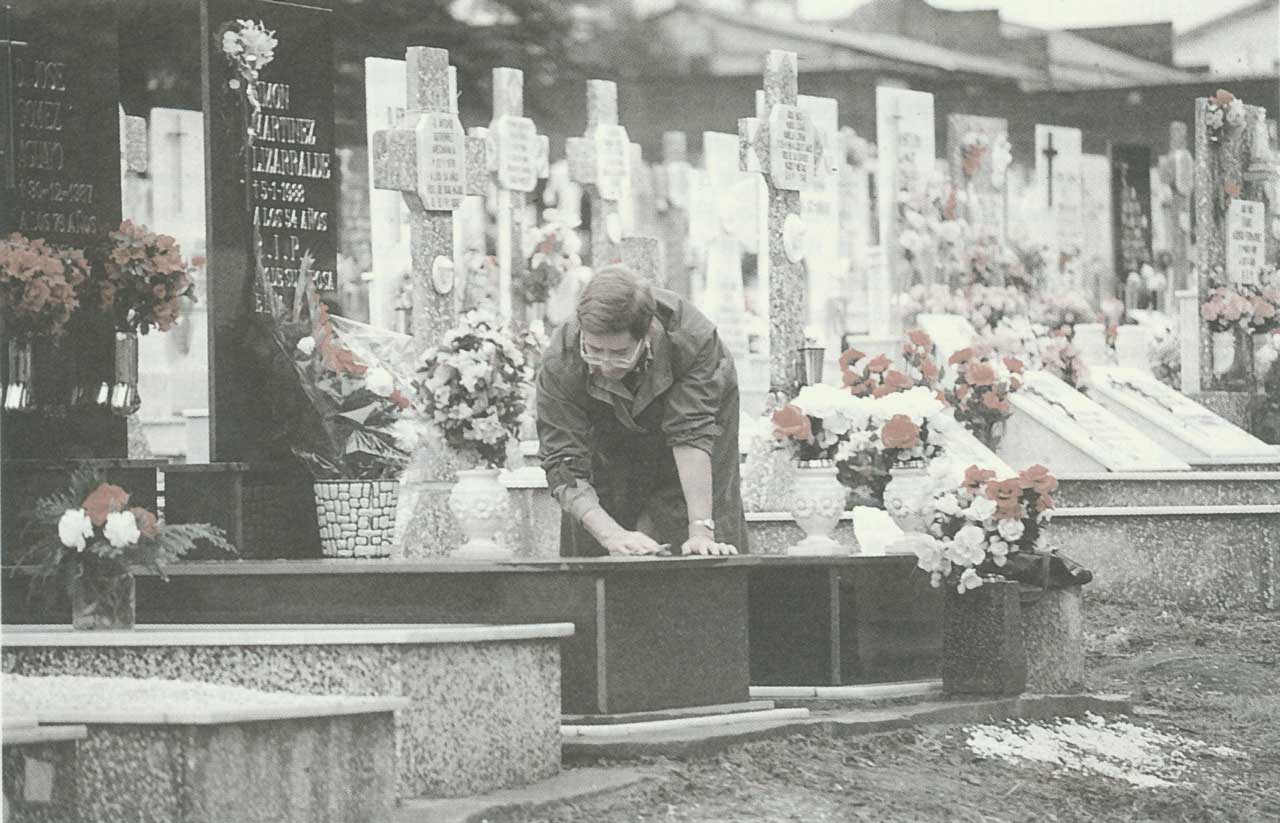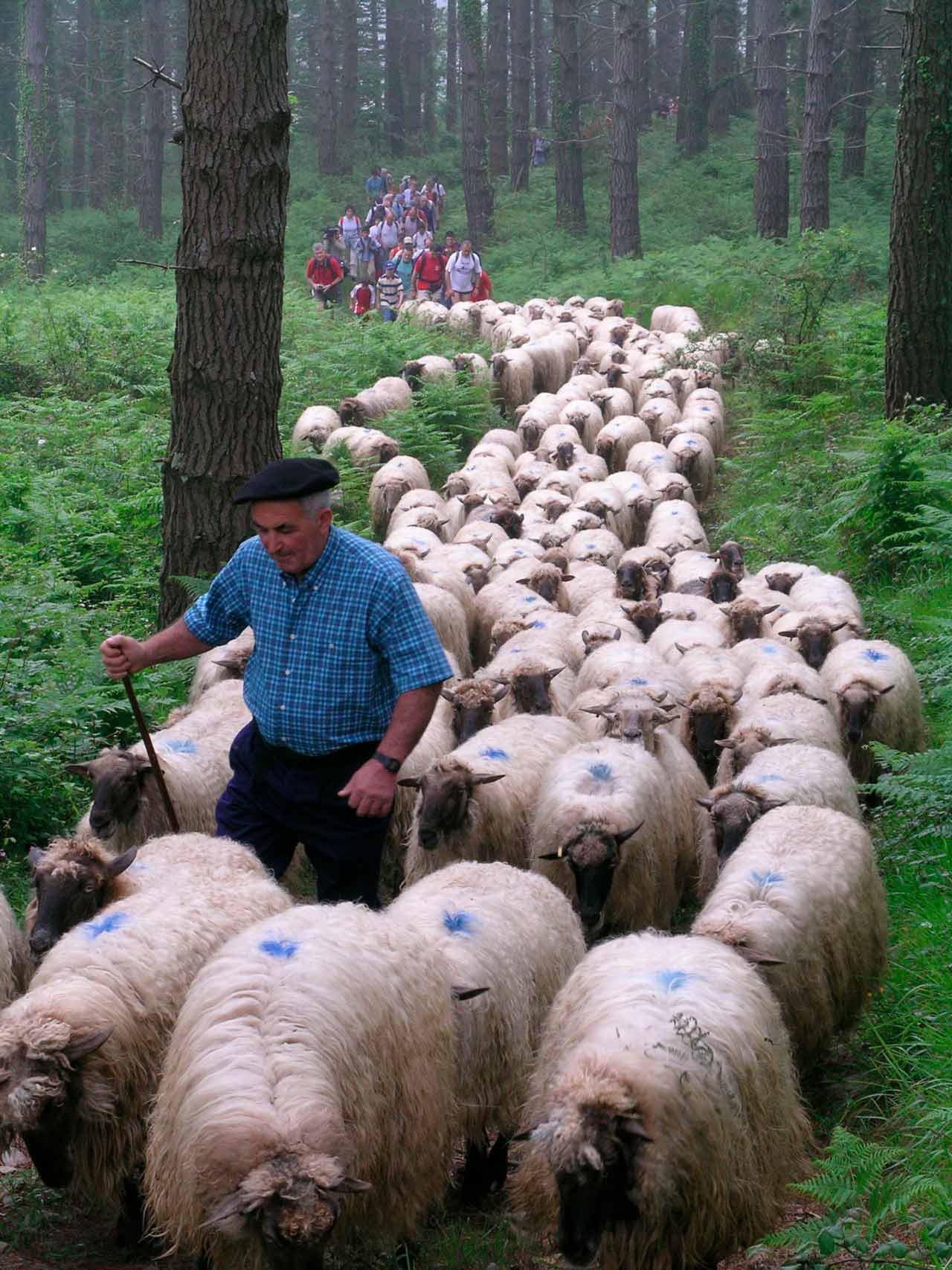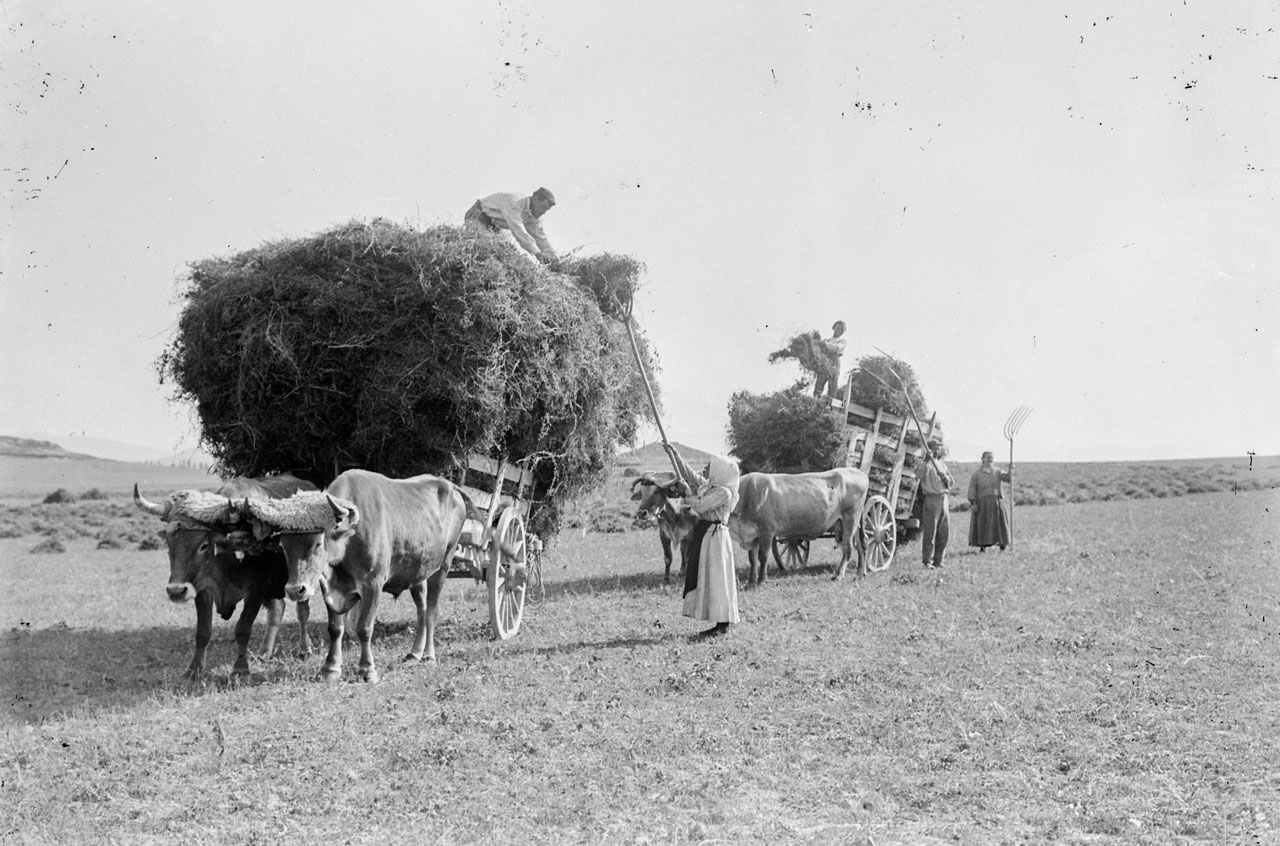Heir of the family. Zeanuri (B), c. 1920. Source: Labayru Fundazioa Photograhic Archive: Felipe Manterola Collection.
House and Family in the Basque Country


House and Family in the Basque Country
The widespread practice in the territories under charter law was for one of the children, either male or female, to continue with the family tradition of keeping up the farmstead and its belongings.
Family Diet in the Basque Country


Family Diet in the Basque Country
Ogi erre berri, etxe galgarri. Soft bread at home, an unruly household.
Children’s Games in the Basque Country


Children’s Games in the Basque Country
Honek arrautza ekarri, honek erreten ipini, honek gatza eman, honek pixka bat probatu, honek dena jan! Game with fingers
Traditional Medicine in the Basque Country


Traditional Medicine in the Basque Country
Zantiratu, zan urrutu, zana bere lekuan sartu.Spell against sprains
Dancing during patronal celebrations. Zeanuri (B), 1922. Source: Labayru Fundazioa Photograhic Archive: Felipe Manterola Collection.
Rites from Birth to Marriage in the Basque Country


Rites from Birth to Marriage in the Basque Country
Young men and women would meet during the Sunday stroll, dances and pilgrimages.
Funeral Rites in the Basque Country


Funeral Rites in the Basque Country
Omens of death included those associated with strange behaviour by some domestic animals, mainly dogs and cockerels.
On the move to the summer pastures in Gorbeia, 2006. Source: Antxon Aguirre, Etniker Euskalerria Groups.
Livestock Farming and Shepherding in the Basque Country


Livestock Farming and Shepherding in the Basque Country
Traditional shepherding and free-range livestock husbandry have prevailed on regions where these three requisites are satisfied: communal land, open-access rights, and free movibility for herds.
Agriculture in the Basque Country


Agriculture in the Basque Country
Both animal and human power had a decisive impact on the way of working and on the crops until the introduction of modern machinery.
